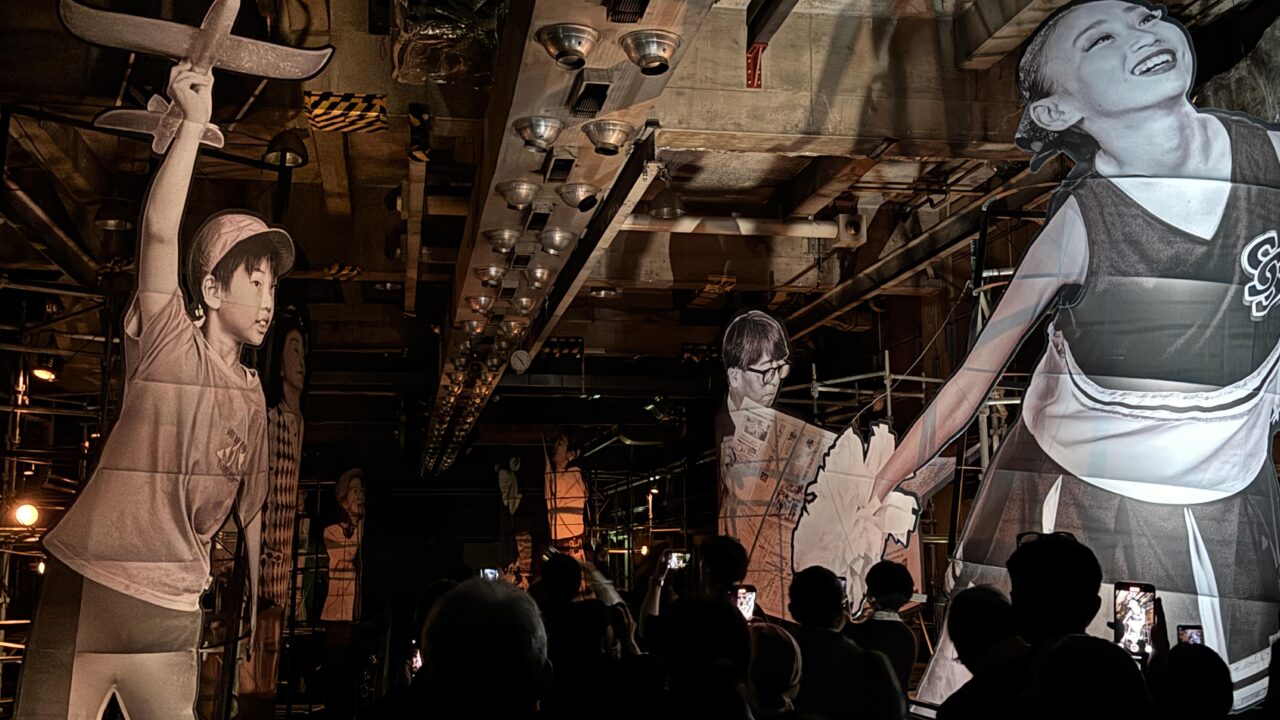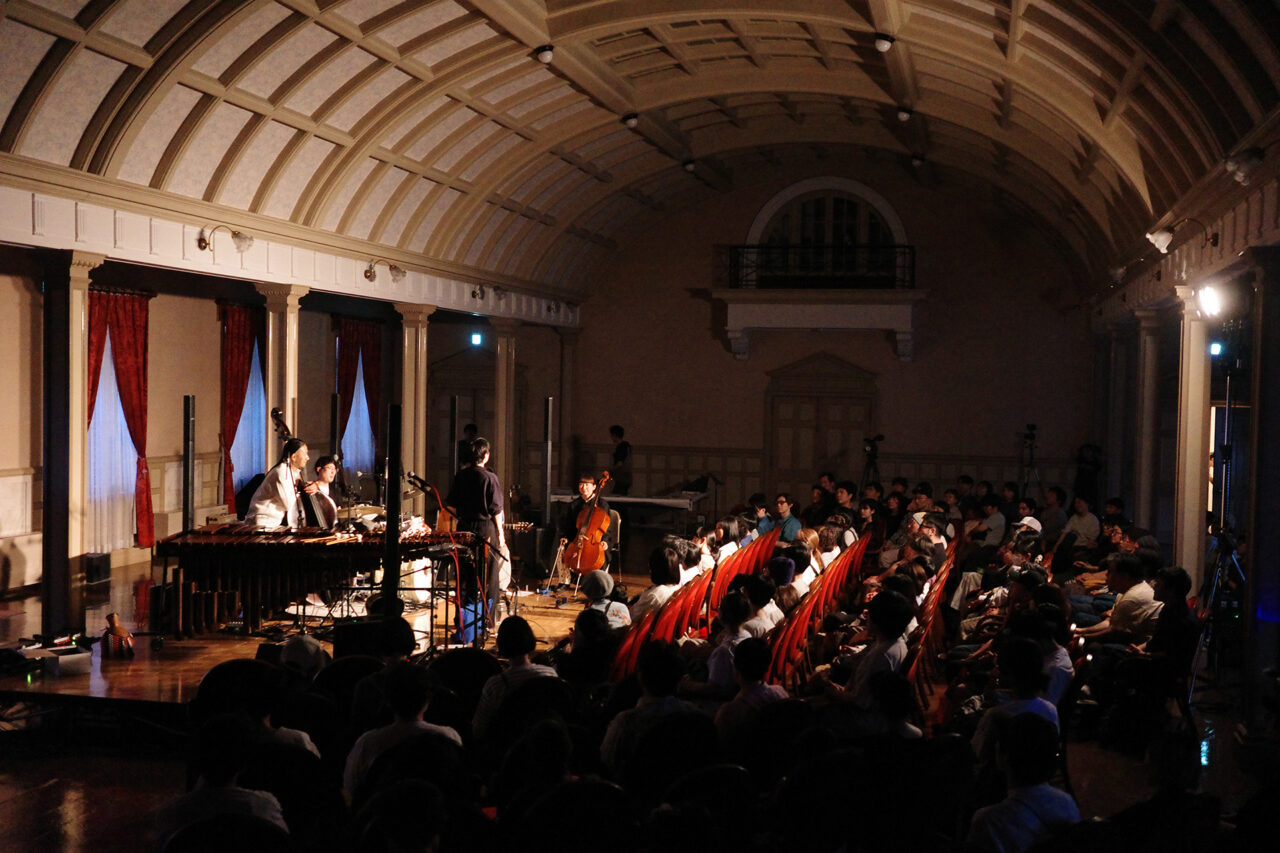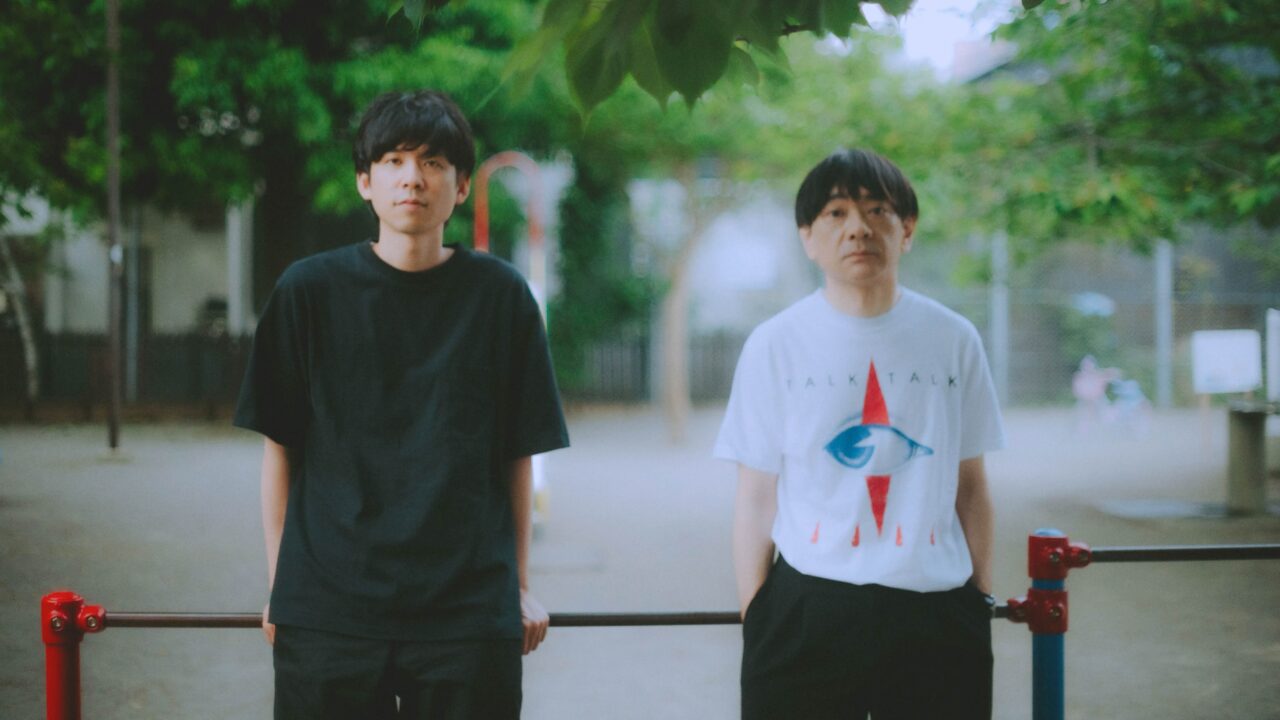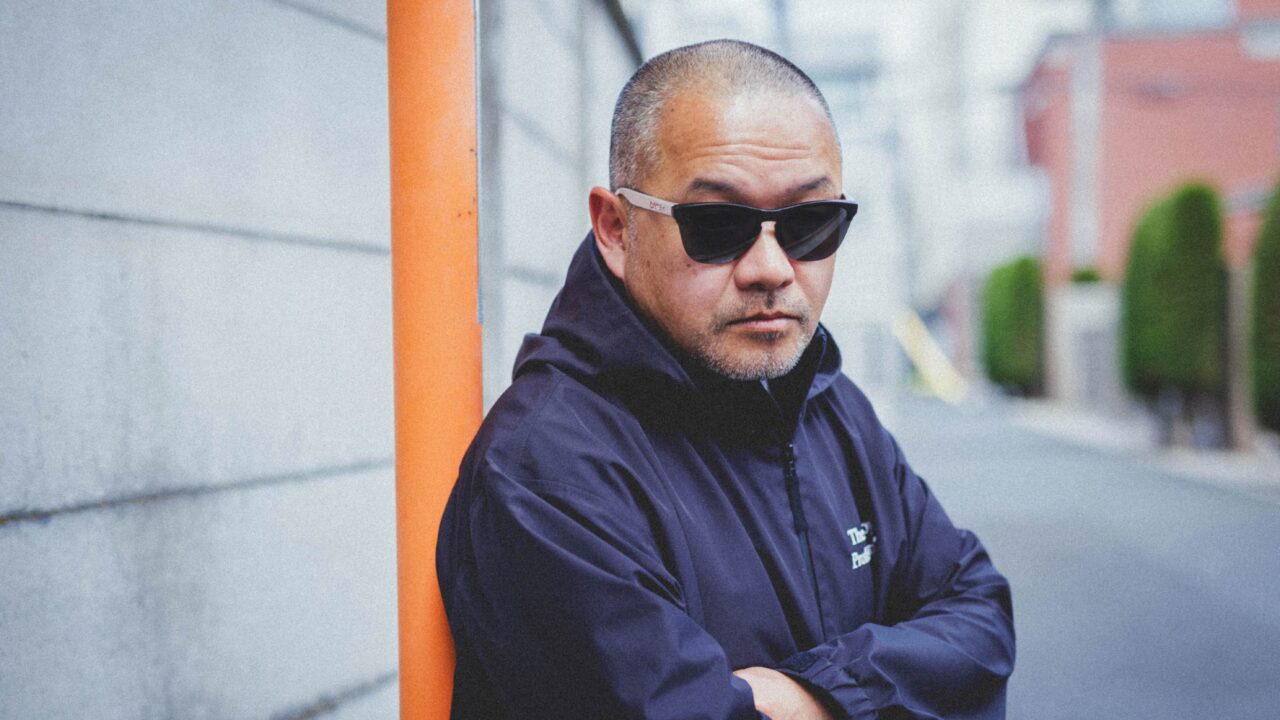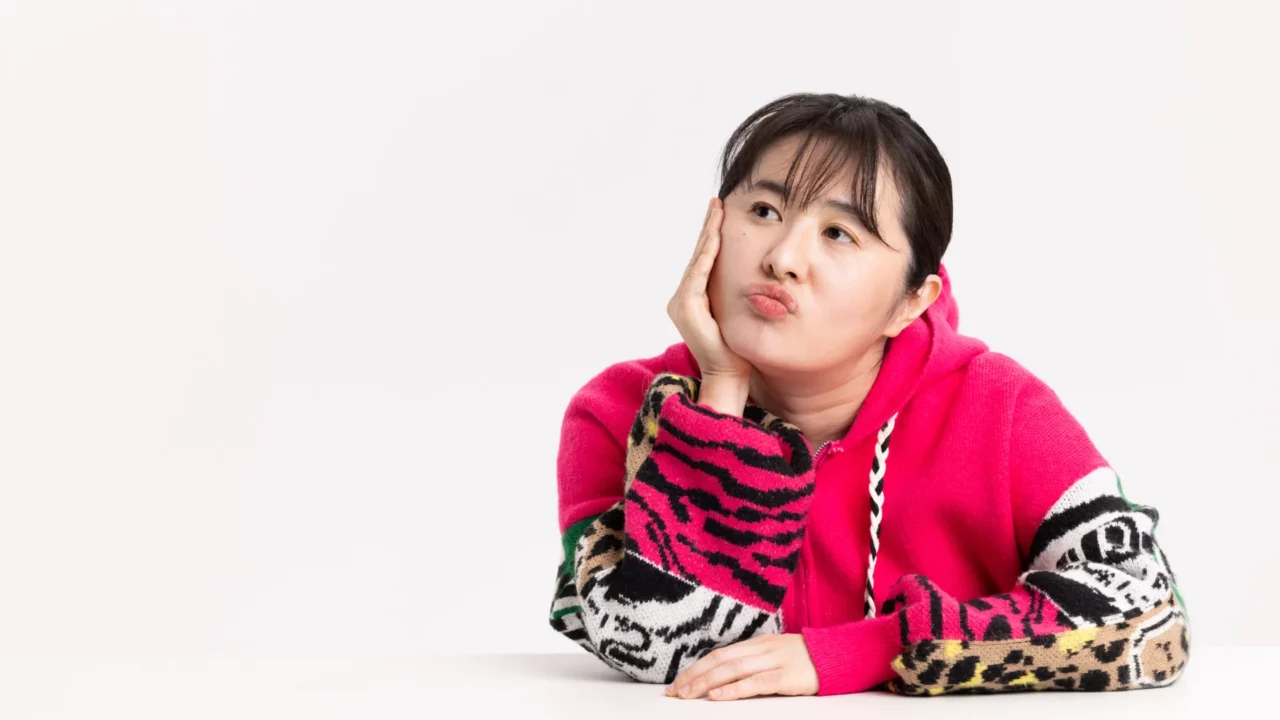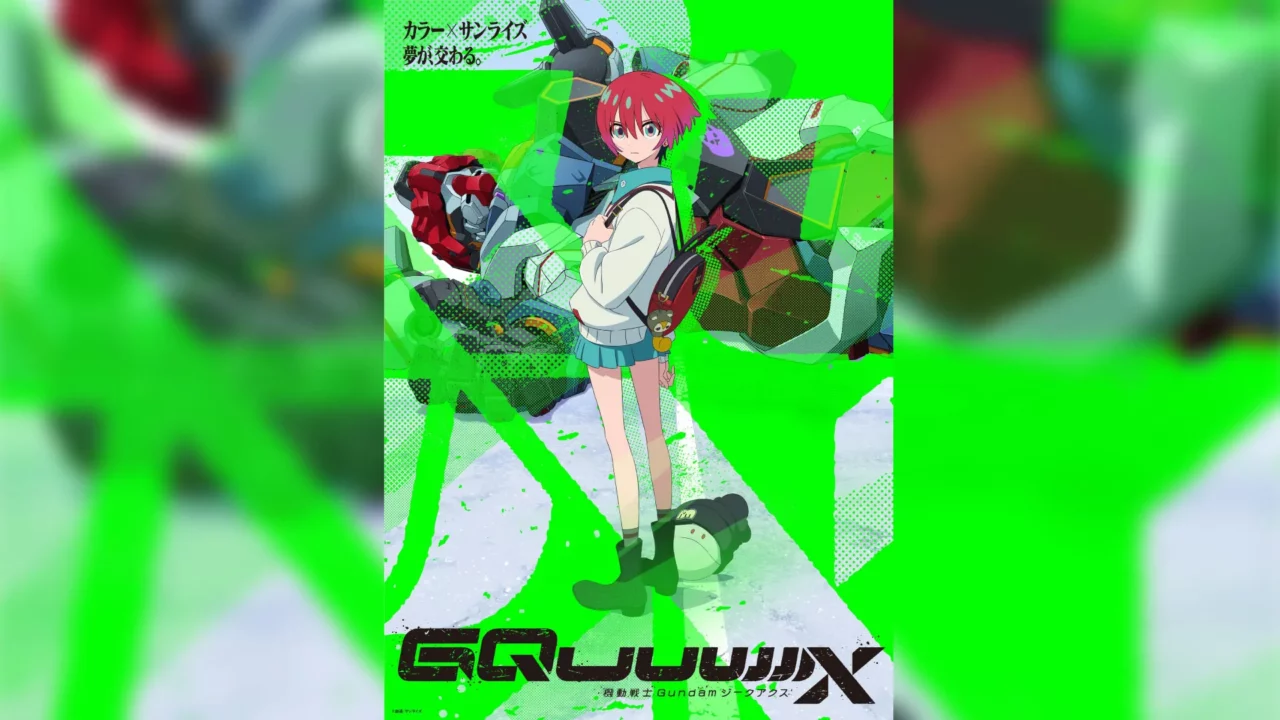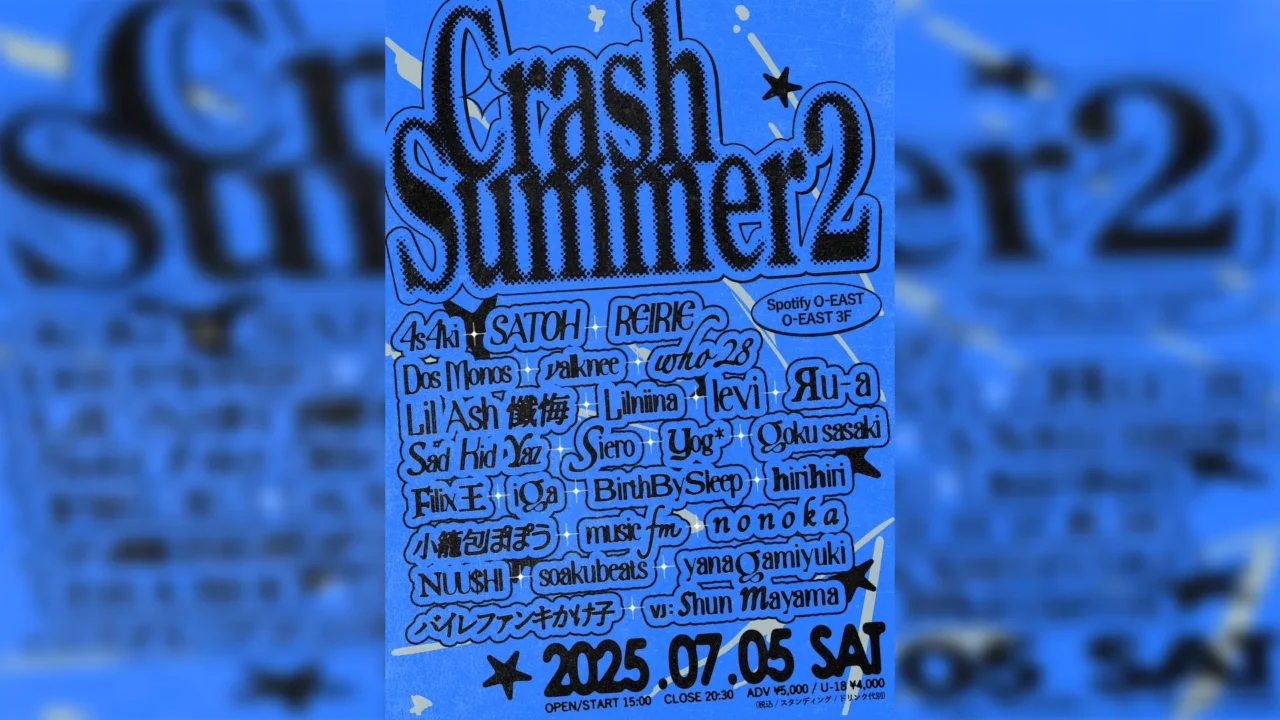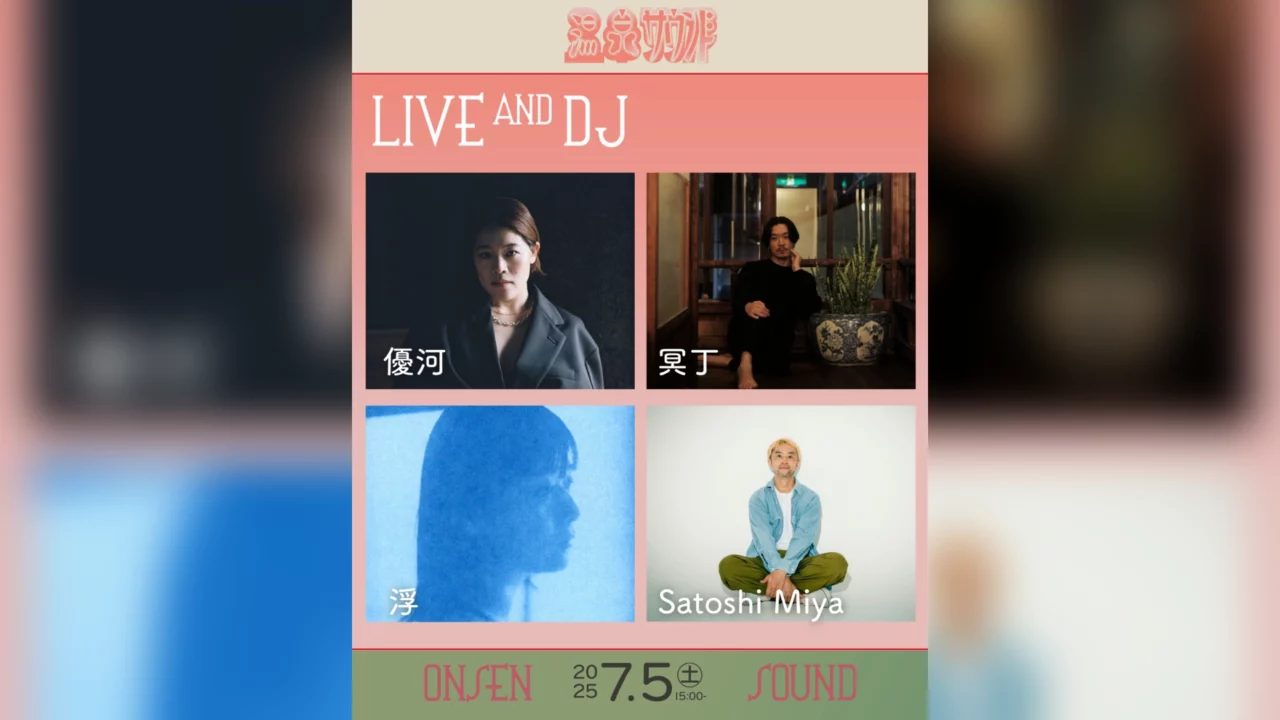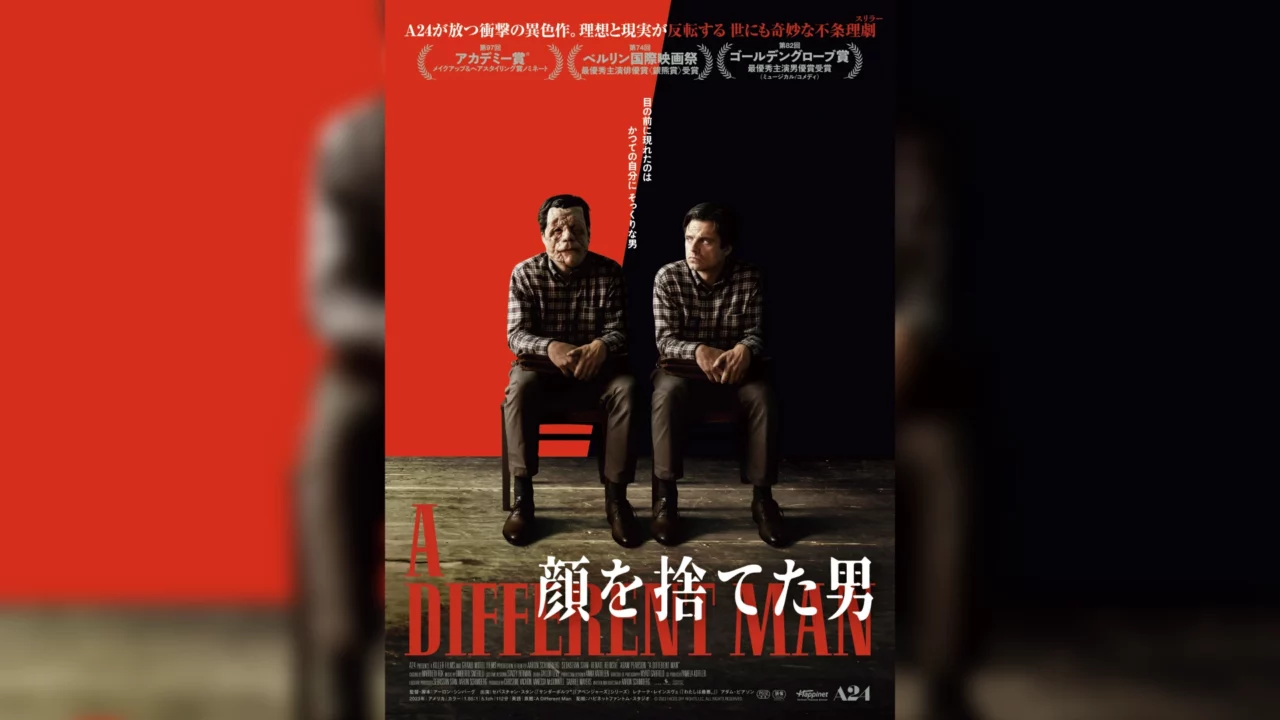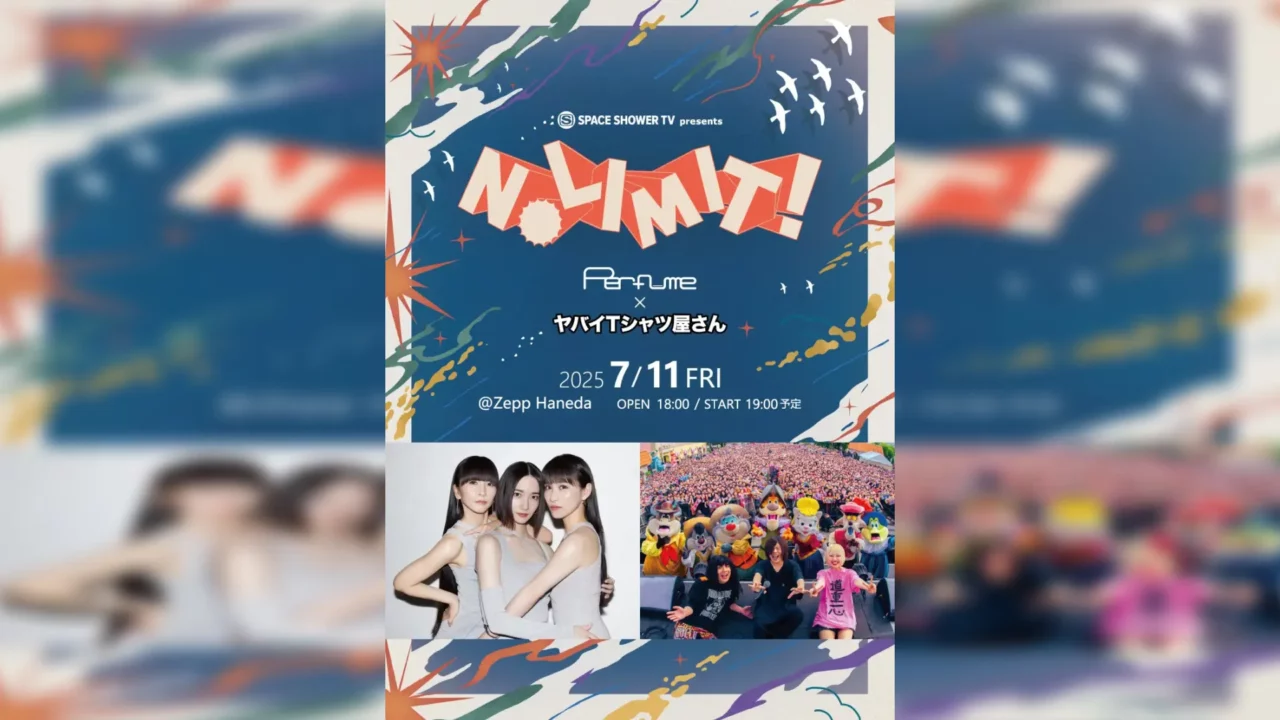Filmed and edited in a unique manner, “The Kingdom (or About the House)” captivates with its repetitive scene rehearsals, a departure from the conventional structure of dramatic films. Officially featured in the “Rotterdam International Film Festival 2019 Bright Future section” and “Yamagata International Documentary Film Festival 2019,” it earned recognition from “The Guardian (UK)” and the British Film Institute (BFI) as one of the year’s best.
Beyond its unconventional structure, the film delves into a disconcerting atmosphere within the dynamics of a couple raising a child and another woman. The actors’ performances draw attention to profound issues surrounding “family and the individual” and the complexities of long-term relationships.
We sat down with the film’s director, Natsuka Kusano, who shared insights into the project’s inception and the exploration of themes related to “family and the individual.”
Note: This article includes content related to the film’s themes. Reader discretion is advised.
INDEX
During the Planning Phase, My Intention was not to Craft a Film Strictly Rooted in Fiction
-What was the genesis of the project?
Kusano: When my previous feature film, “Antonym” (2014), was released at the Nagoya Cinematheque in 2015, I was talking with Yuji Hirano, the manager at the time, about the films I liked and the direction my production was going. Then he said, “I think you are suited for this grant. If you want, why don’t you submit it?” He introduced me to the grant from the Aichi Arts Center and Aichi Prefectural Museum of Art. So I submitted my project and the grant was approved, and I was able to shoot the film.
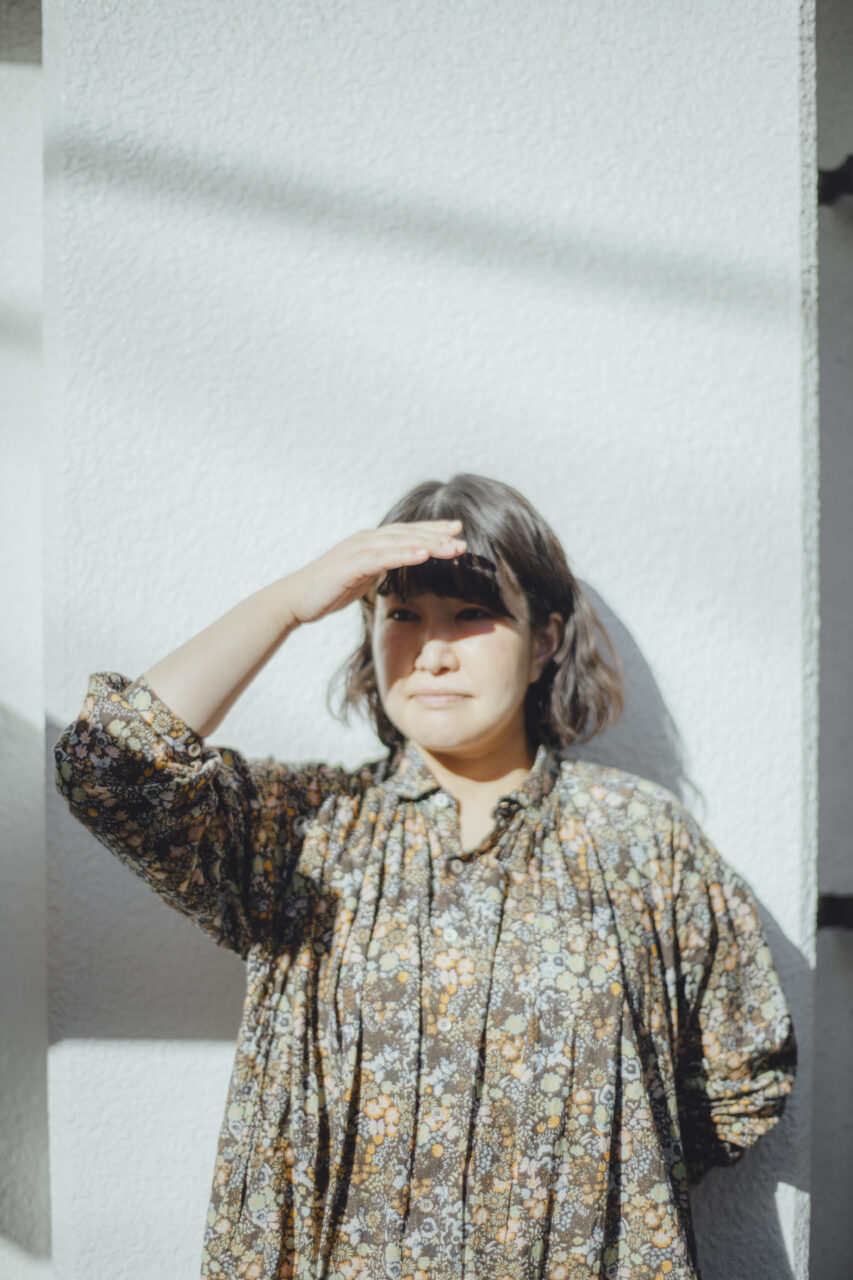
Born in 1985 in Kanagawa Prefecture. Filmmaker. Graduated from Tokai University, Department of Literature, Literature and Creative Writing, and completed the 12th Fiction Course at The Film School of Tokyo. 2014 “Spiral Galaxy” was her first feature film. His second feature film, “The Kingdom (or About That House)” (2018), was selected by the British Film Institute as one of the “Outstanding Japanese Films of Each Year, 1925-2019” in 2019.
-“Domains” takes a different approach from typical narrative films, showcasing a rehearsal process known as ‘Hon-yomi,’ where actors read and explore the script. Was this format of depicting the rehearsal stage with the script initially planned during the project’s conceptualization?”
Kusano: That is not the case. From the start of the project, we did not intend to make a purely fictional film. However, we decided to make the script as a fiction film. So I never thought of making a feature film based on this script, and I still don’t.
Synopsis: Aki, on leave from her job, goes home to her parents’ house for a few days and visits her childhood friend Nochika’s new house. She married Naoto, a senior at university, and had a baby, and lives in a new house she built near her parents’ house. The house is comfortably maintained in terms of temperature and humidity, and Aki feels as if she is isolated from the rest of the world. Nodoka’s daughter, Honoka, who was shy at first, grew fond of Aki as they played together, but Nodoka seemed to be very tired. A few days later, Aki returns to her home in Tokyo and writes a letter with a shocking message.
-So, this format of film was planned from the conceptualization stage.
Kusano: Most of it was, but when we submitted the proposal, we wanted to show the physical changes of the actors, so we planned to shoot a fictional scene without rehearsal at the very beginning, then rehearse for a few days, and shoot another fictional scene on the last day. However, we did not plan to include the entire rehearsal scene in the film. So it was supposed to be a short film with two fictional parts, but after some twists and turns, it ended up being a film mainly showing the rehearsal scene.
-Ultimately, the film primarily comprised rehearsal scenes. Did the script specify how often the same rehearsal scene would be repeated?
Kusano: Not at all. The script itself was really in the form of a fictional movie scenario.
-So, the plan was to deconstruct the script of a fictional film during the filming stage.
Kusano: Yes, that’s right. At first, we planned to rehearse all the scenes, but for several reasons, we realized that this was impossible. So we picked up a few scenes from the scenario, and when we realized that we could still understand the story, that was the moment when we realized the greatness of Tomoyoshi Takahashi’s composition of the script.
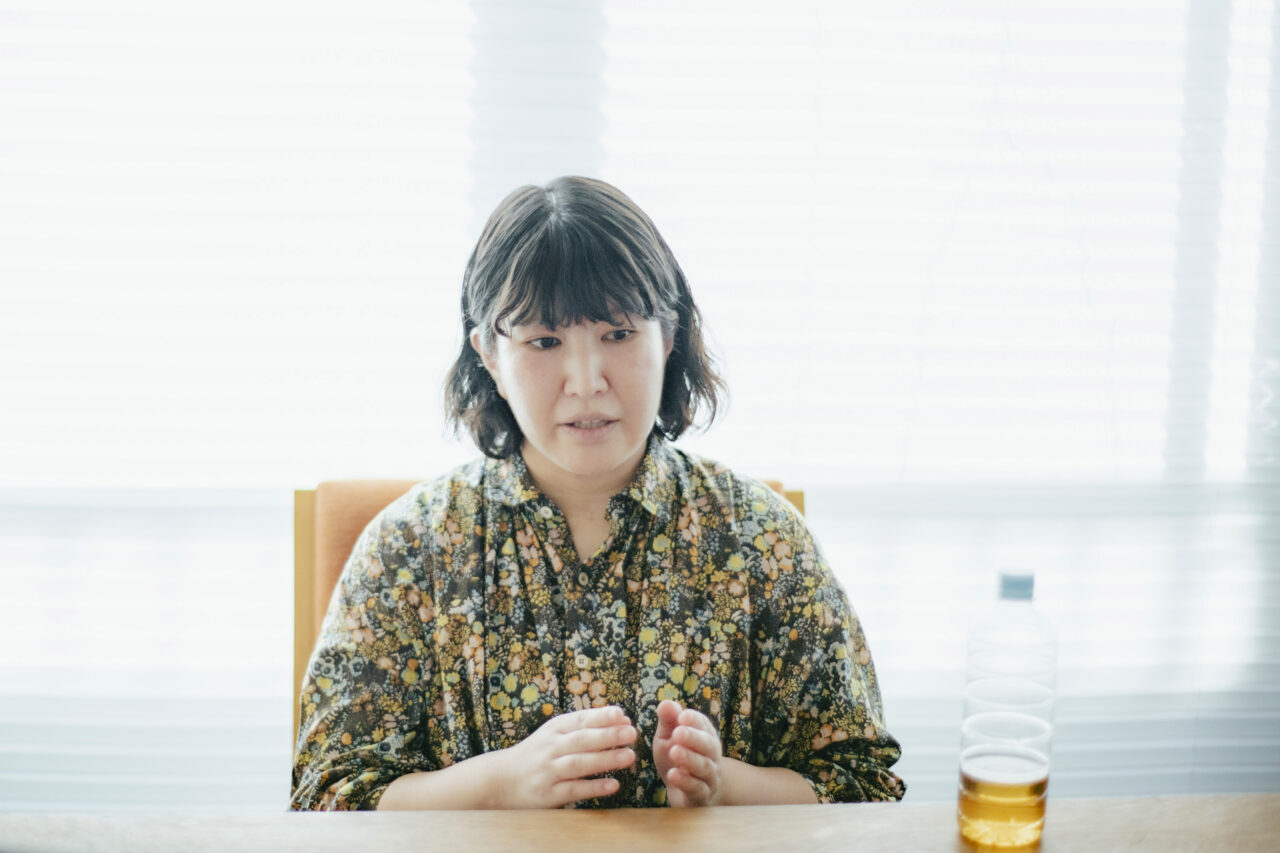
– How did you feel when you first received the first draft from Takahashi?
Kusano: It was too formal (laughs).
– Yes, it was too formal.
Kusano: Certainly, I found his approach to be very meticulous. He possesses a keen sense of structure and composition, and I distinctly recall being appreciative of the well-crafted work he had delivered. While my strength lies in crafting dialogue, I remember desiring collaboration with him to refine the lines. Despite this, I also recognized his exceptional compositional skills.
Takahashi and I previously collaborated on “Antonym,” during which we extensively worked together on the script. However, this time around, due to my other commitments, I simply presented him with an idea, stating, “Here is the proposal, feel free to write as you see fit,” and there was minimal back-and-forth. I’m truly thankful to Takahashi for crafting such a solid script, and our trusting relationship was rooted in the confidence I had in his ability to deliver exceptional work.
INDEX
The Realization that Households Raising Children Possess Remarkable Uniqueness was Truly Surprising
-Excluding the detective at the beginning of the film, there are only three characters in the film: the wife, Nodoka; the husband, Naoto; and Aki, an old friend of the wife’s who comes and goes at the house where they live.
Kusano: From the planning stage, I wanted to depict people who are obsessed with something or someone in particular, which is why we ended up with one couple and a woman from the outside.
There was one more reason: I wanted to make a film that was like a game of cards. In this film, the wife, Nodoka, plays the joker role, and it is up to Naoto or Aki to take Nodoka. It’s like a card game, where the strength of the game changes completely depending on that. This may be the common theme of the film, “territory”.
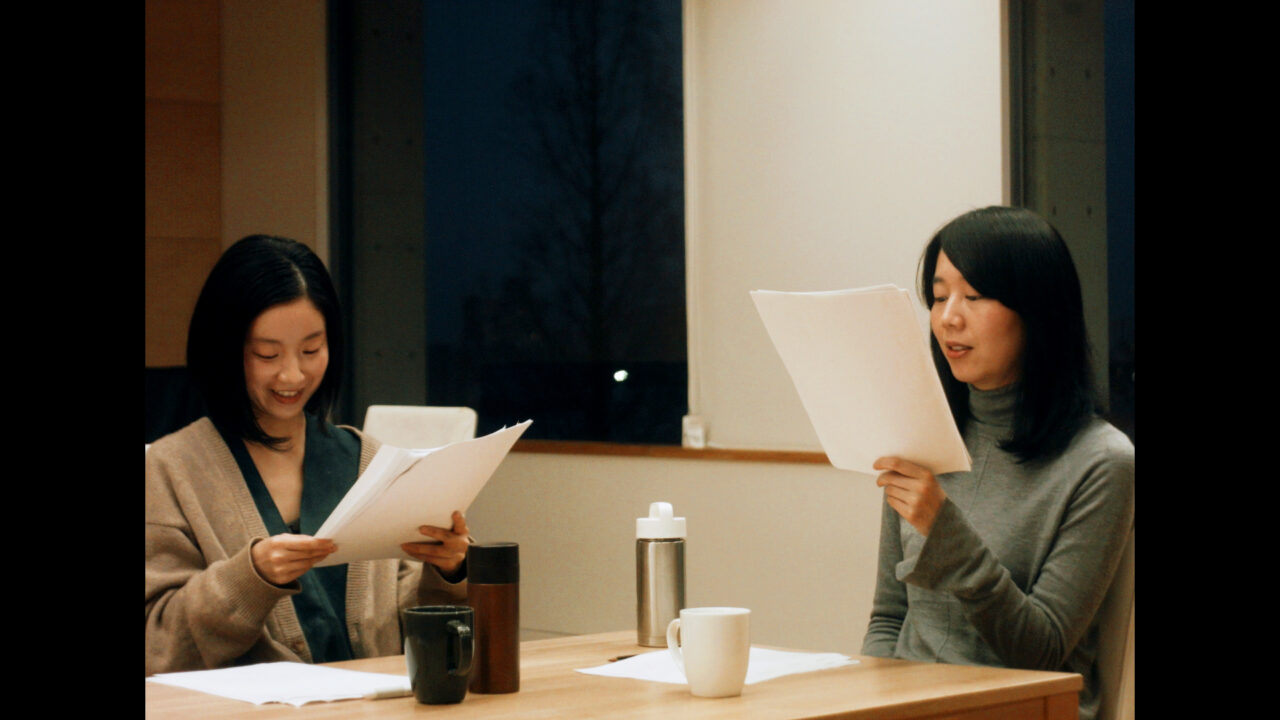
-I think the most important thing to remember is that the actors’ bodies and speech change as the film is shot, and we, the audience, are watching the process of change.
Kusano: I was most impressed on set. There were clear moments when I felt that we had to end rehearsals here, because if we did any more, it would become a production, not an actual reading. It was a moment when everyone on site felt the same way. However, when I showed the footage I had shot to my co-editor, Keita Suzuo, who was not at the site at all, he told me that he did not understand the changes that I could talk about with such passion. I knew that there were some things that could not be conveyed on film. So I was very particular about how to show them again in the editing.
-I was moved by the changes in the actors during rehearsals, and the fact that all the people on set shared that emotion seemed to resonate with the phrase “dense time” that appears in the play.
Kusano: The phrase “dense time” was not my idea. In order to express the “dense time” that Aki and Nodoka spent together, we decided on a code word that could be understood by both of them, which eventually became a song.
The song was “Kojo no Tsuki” by Rentaro Taki , and I chose it completely out of personal taste. In Nami Iguchi’s “The Love and Adventure of Yukihiko Nishino” (2014), there is a scene where she sings “Song of the Beach,” and I really like that kind of thing, so I wanted to sing a song too.
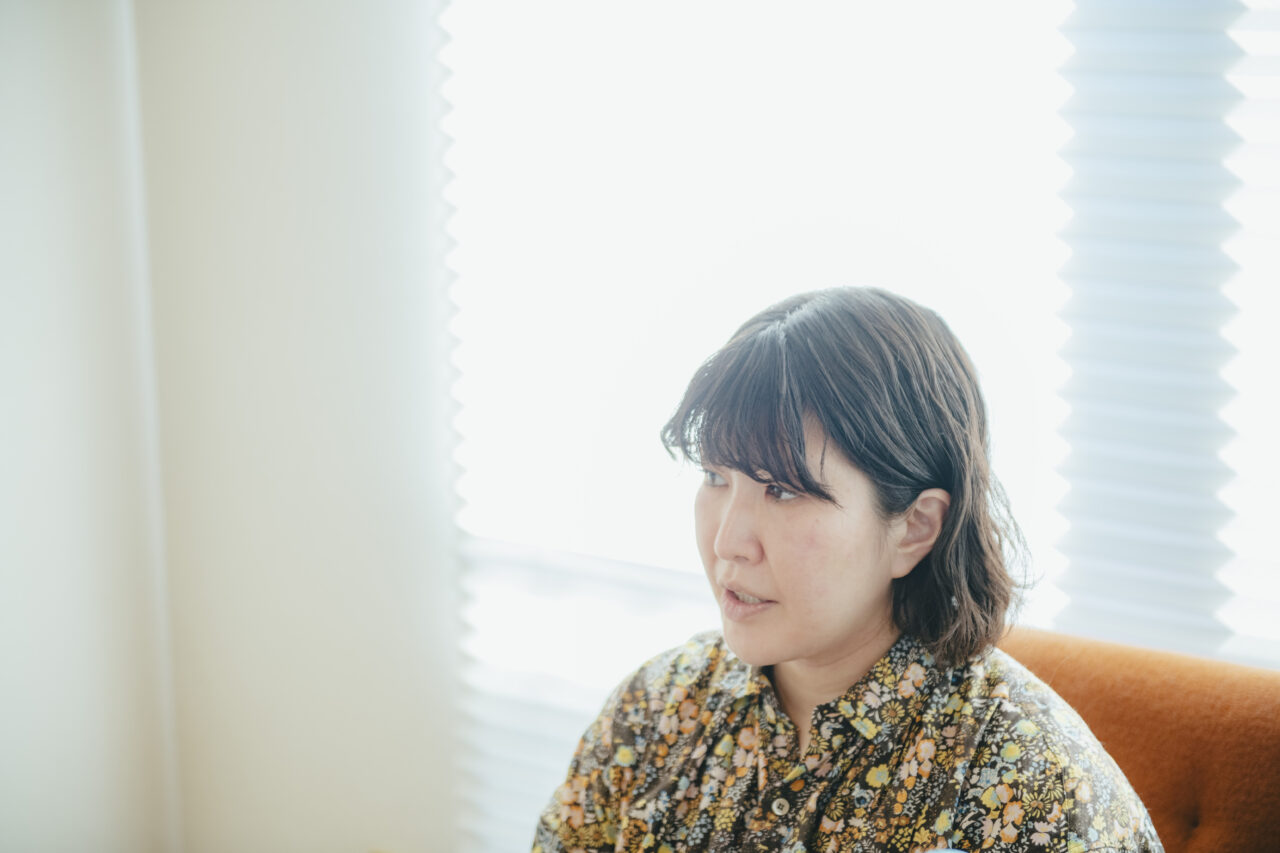
-You also mentioned earlier that “territory” is the theme of the film. In the play, the time Aki and Nodoka spend together is called “the kingdom. On the other hand, Aki calls Naoto and Nodoka’s house “a kingdom that has its own space,” and says that she felt something dangerous there.
Kusano: When I actually went to visit my friend and her husband’s house, I felt like I was in a cocoon or covered by a curtain. I had the impression of a soft space where temperature and humidity are properly controlled and small creatures are nurtured. I thought that a house where children are raised is very special, and the impact was amazing. So I wanted to depict a house where children are raised in my film.
But in the film, the child dies as a result, so I told the friend, “I’m really sorry. I’m sorry I used them as a motif.

-Aki kills Honoka, the child of Naoto and Nochika, doesn’t she? How do you feel about this development?
Kusano: There was an incident that I was very concerned about, the death of a child, and I thought it would be great if I could incorporate that into the work at the planning stage. At first, it was just a simple reason, but I have been struggling with it for a long time, and I haven’t found the right place to put it down yet. Even though it is a work of fiction, I am wondering if it was really the right thing to do.
Even if it was necessary for the work, I still haven’t found the answer to the question of why the child was killed in the play. As a filmmaker, I was still inexperienced in some areas. So I hope that by releasing the film this time, I will be able to give some answers.
INDEX
I Consider Myself Someone who Harbors Considerable Doubts about Marriage and Couple
-Aki and Naoto are a married couple, but what did you think about portraying a married couple?
Kusano: I didn’t really think about that (laughs). (laughs) At the time, I had not even registered my marriage, and even now, after marriage, I still consider myself a person who is very suspicious of married couples and marriage. That’s why I didn’t direct it in detail even then. Looking back on it now, I am amazed that the actors were able to do so well.
-I have the impression that such doubts about marriage led to the way you portrayed the character of Naoto, played by Tomomitsu Adachi.
Kusano: I had the image of a person who was overly longing for a “family,” which is bracketed. In order to create that bracketed “family,” he is willing to sacrifice himself and speak out strongly against others.
I think that Mr. Adachi’s portrayal of the husband, who is, to put it bluntly, a bit of a moral harasser, pulled Satoshi Kasajima, who plays the role of Nochika, into his role as well. Mr. Adachi, who has a lot of experience on set, was a pillar, or rather, it was as if there was a straight line that ran through the film, and his presence was really significant.
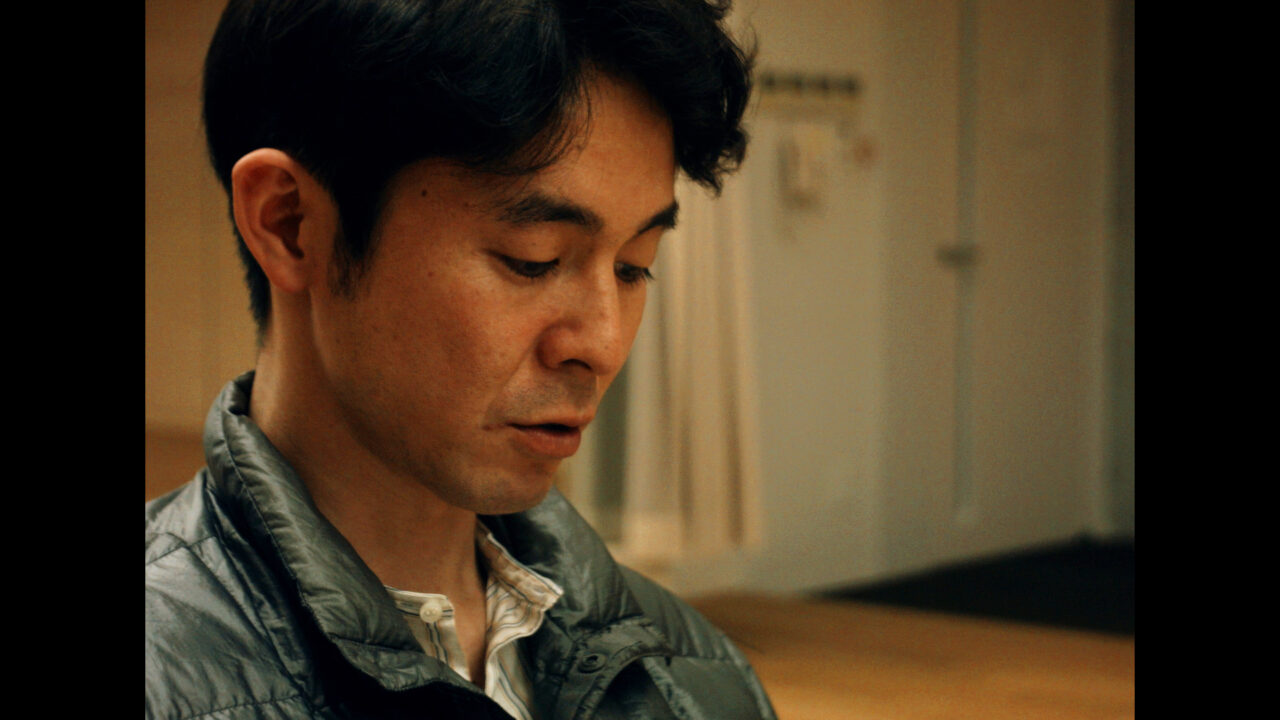
-In the film, Naoto has to act strongly as a father in order to maintain the “family”, and I thought that for Aki, Nodoka, who is raising the child, seems to be tied down in some ways. I feel that this was one of the reasons why Aki had no choice but to kill her child, as I mentioned earlier.
Kusano: This is a personal story, but I myself do not share household chores with my spouse at all. I don’t think we would have been able to be together without that kind of person.
However, my mother was a housewife and lived with my grandparents on my father’s side. My grandparents were strict people, and my father was a very hard worker. So I had the impression that I was confined to the house, with my mother not being able to go out at all and doing housework all the time. I think this influenced my own craftsmanship. I feel that my mother’s way of being must have been quite intense as a present experience.
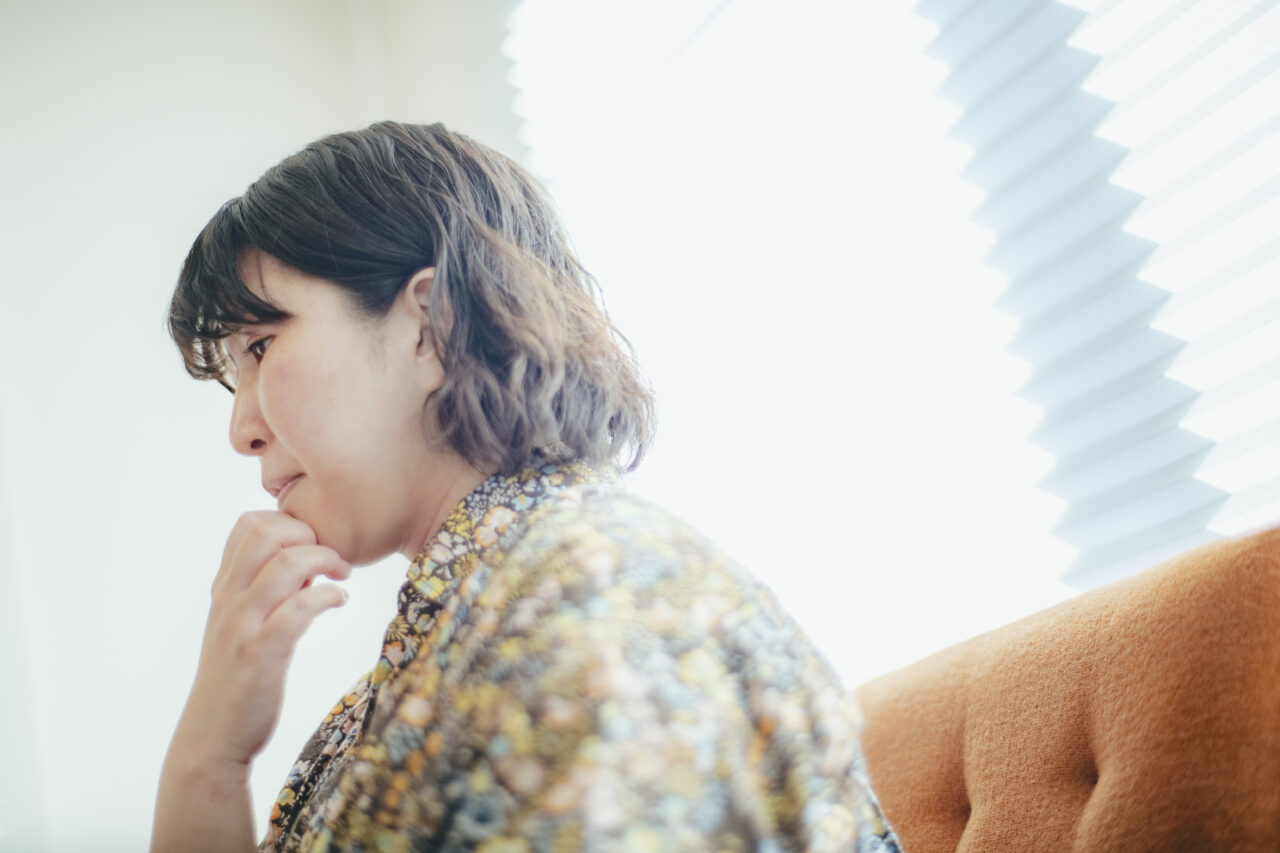
-In the final scene, when Aki kills Honoka, Nodoka’s daughter, Ms. Kasashima, who was supposed to be playing the role of Nodoka, screams in response to Honoka’s complaints, and Mami Shibuya, who plays Aki, responds to her. It was a scene that gave me a strange sensation as if a daughter and a mother had switched places.
Kusano: The reason why I wanted Ms. Kasashima to say Honoka’s lines only in that part was completely based on a hunch I had on the spot (laughs). (Laughs.) It was just a hunch, but probably somewhere in the back of my mind, I wanted to make Honoka and Notocha sound like each other.
By doing so, I think he intended to make the person who commits the murder more convincing, or to create something that could be one of the reasons for committing the murder.
-I was moved to tears the first time I saw it, and it was my favorite scene.
Kusano: Thank you very much.
INDEX
Verbal Expression Alone doesn’t Convey My Emotions to Everyone
-In the last scene, Aki reads the letter she wrote to Nochika. Aki says, “Even if you read that letter, no one but me and Nodoka will understand what it says. She says that only she and Nodoka, who share the same “kingdom,” can understand it.
Kusano: Aki wants to stay in the time she has with Nochika, in other words, in the relationship they have spun together. I think the letter condenses Aki’s inability to get out of that relationship. So in the end, even if I put it into words, it would only be understood by the two of us. In terms of writing a letter that may not be understood by others, in the end, the character of Aki remains closed to the “kingdom” with Nodoka.
But I think that’s fine. Just because you “put it into words” doesn’t mean that everyone will understand your thoughts, and in fact, some words can steer in the opposite direction and be misinterpreted.

Kusano: For that letter, the scriptwriter, Takahashi, first created the groundwork. Shibuya-san, who played Aki, read the basic sentence and during repeated rehearsals, he checked whether he had experienced this emotion or not, and added to it.
At that time, I thought it was very interesting to think about whether the person who was identifying the words was the character Aki or the actor Asami Shibuya. As the director, I was also interested in the question, “In which state is she spinning the words?

-When Naoto says to Aki, “It’s good that you are putting words out there,” Aki swallows her words and looks puzzled, and the last scene is impressive. I thought it was a film about holding back what cannot be expressed in words and discovering the expression and face of confusion.
Kusano: That is a very good expression, isn’t it? Hisatake Watanabe, the cameraman, told me, “That scene is the happiest scene for the three of us, and after that, the happy scenes gradually disappear. I thought to myself, “Yes, that’s true.” Within that happy scene, there is an exquisite change of feeling. I thought that was reflected on the screen in his face.
I am proud that I was able to do what I wanted to do. If I had to go further than that, it would have been the expression I was going to use in the production. I brought that take to the end because it was right on the edge of the line.

Domains

Opening December 9 (Sat.) at Polepole Higashi-Nakano and other theaters nationwide.
Director: Natsuka Kusano
Screenplay: Tomoyoshi Takahashi
Photography: Hisatake Watanabe
Sound: Huang Yongchang
Assistant Director: Wataru Hiranami
Art Director: Koyuki Kato
Costume Designer: Yue Ogasawara
Hair and makeup: Rumi Terasawa
Editing: Keita Suzuo, Natsuka Kusano
Ending Song: GRIM “Heritage
Executive Producer: Takuji Echigoya
Producer: Tokuji Suzuki
Planning: Aichi Arts Center
Production: Aichi Prefectural Museum of Art
Distributor: Cogito Works
Cast: Mami Shibuya, Satoshi Kasajima, Tomomitsu Adachi
2018 / Color / Standard / 150 min
Official website:domains-movie.com





